April 17, 2025 | 09:42 GMT +7
April 17, 2025 | 09:42 GMT +7
Hotline: 0913.378.918
April 17, 2025 | 09:42 GMT +7
Hotline: 0913.378.918
After nearly six years of consistent efforts in implementing various synchronized solutions, Vietnam is unable to remove the yellow card issued by the European Commission for illegal, unreported, and unregulated (IUU) fishing.
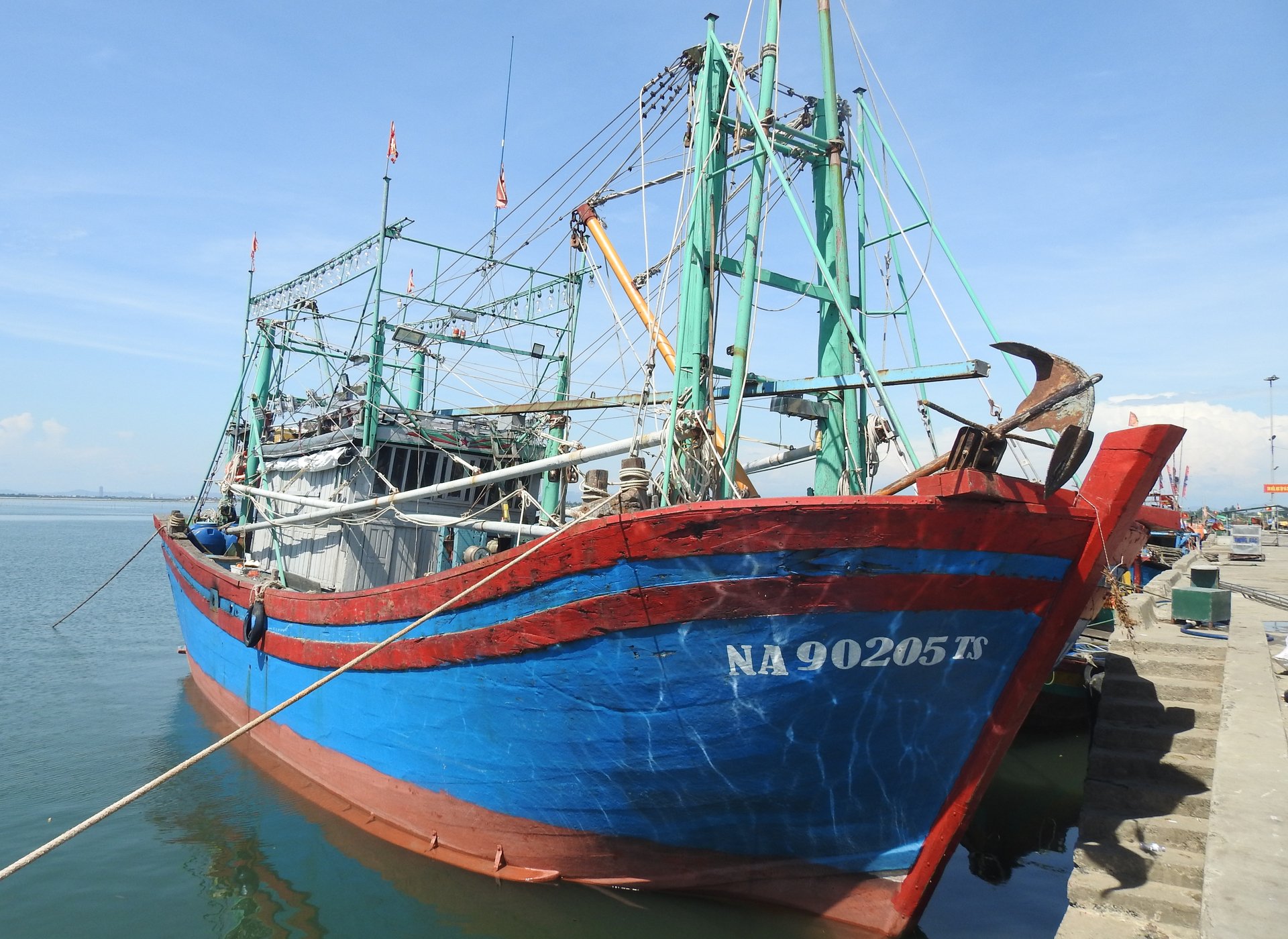
Twelve provinces in Central Vietnam joined forces to combat IUU fishing. Photo: Thanh Nga.
Although fishing is a traditional occupation in Vietnam with deeply ingrained practices, it is crucial for the long-term sustainable development of the fisheries sector that fishermen strictly adhere to international legal regulations.
In continuation of previously implemented solutions, twelve provinces in Central Vietnam, including Thanh Hoa, Nghe An, Ha Tinh, Quang Binh, Quang Tri, Thua Thien - Hue, Da Nang, Quang Nam, Quang Ngai, Binh Dinh, Phu Yen, and Khanh Hoa, have recently signed a coordination charter for the management of fishing vessels engaged in offshore seafood exploitation.
According to Mr. Nguyen Cong Hoang, Director of Ha Tinh province's Department of Fisheries, this charter aims to prevent, detect, and address violations of illegal seafood exploitation, fishing in foreign waters and crew members operating in wrong provinces' waters.
Under this coordination charter, the local Provincial People's Committees will direct their respective agencies and organizations to enhance widespread dissemination of the central and local governments' directives concerning the violation of fishing in foreign waters, with an emphasis on the 2017 Law on Fisheries. Furthermore, the local governments will carry out awareness campaigns for fishermen regarding the boundaries of Vietnamese waters in relation to neighboring countries, particularly in areas with undetermined boundaries, overlapping claims, and sensitive maritime issues.
The aforementioned provinces have the responsibility to collect data, monitor the number of fishing vessels actively operating offshore, register and inspect fishing vessels, issue licenses for seafood exploitation, and provide certificates for compliance with food safety requirements. They will also oversee the fishing vessels' compliance with designated port docking, prevention of illegal fishing, and the correct procedures for the loading and unloading of seafood in accordance with regulations.
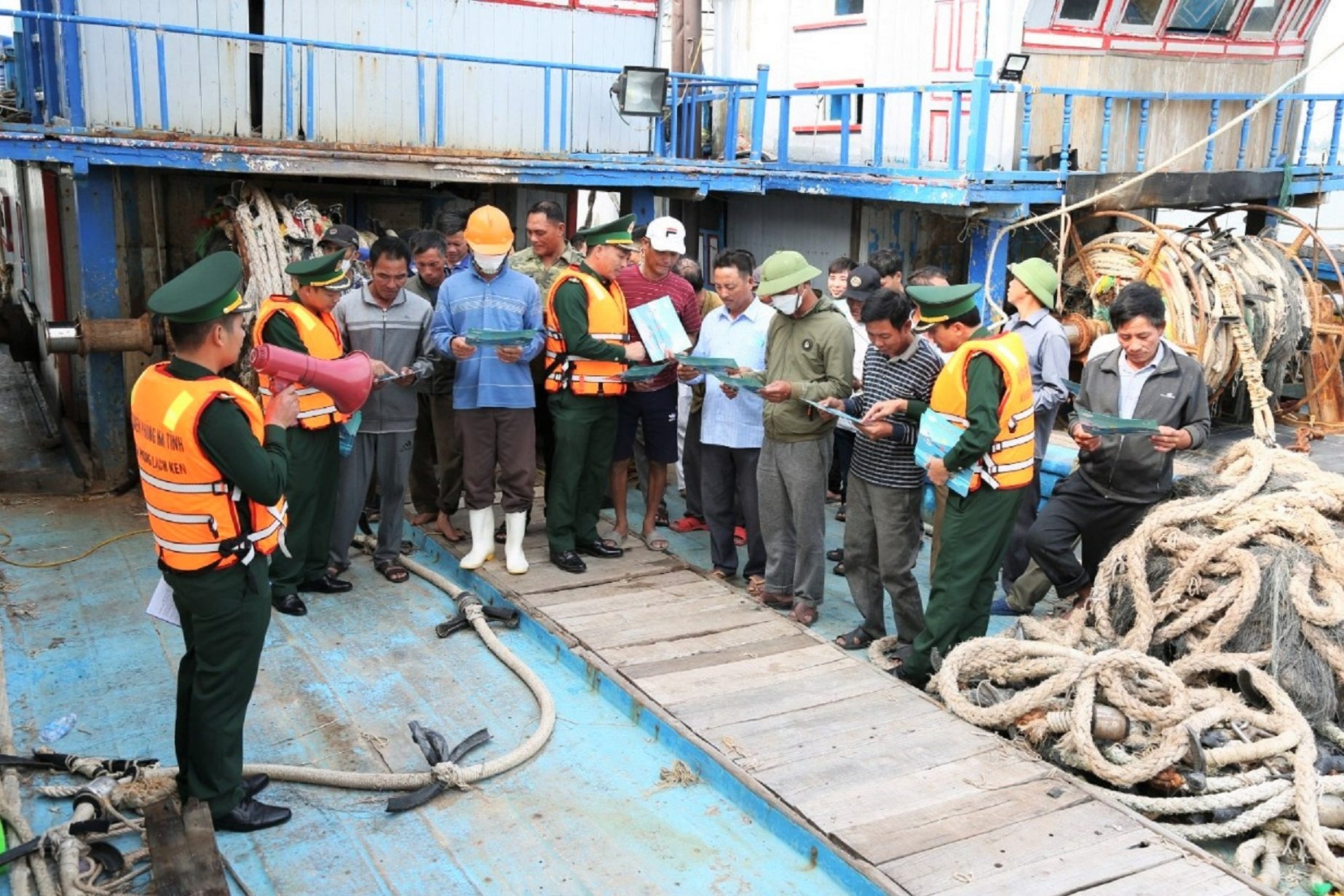
The Border Guard forces in participating provinces play a crucial role in combating IUU fishing. Photo: Thanh Nga.
The twelve provinces will collaborate to strengthen the inspection and control of fishing vessels and crew members engaged in fishing activities that exhibit signs of violating foreign waters. Most notably, they will specfically target fishing vessels and crew members which are subject to increased inspection and control.
Furthermore, these provinces will manage and control fishing vessels from other provinces in a similar manner to their own vessels. They are responsible for organizing awareness campaigns and reminders to prevent fishing vessels from other provinces from engaging in illegal fishing activities, including those in foreign waters.
On the other hand, the charter specifies that the provinces will instruct the Border Guard forces to perform effective patrols as well as the registration and verification of vessels traveling through ports at border guard stations. Additionally, the Border Guard forces will strictly handle cases of missing documents and equipment for fishing vessels. Accordingly, they will restrict fishing vessels from departing without meeting the regulations.
"The signing of this coordination charter will establish a coherent legal framework for directing, patrolling, controlling, and handling violations by fishing vessels across the twelve provinces and cities. The charter will help provinces enforce regulations in a consistent and synchronous manner. Moreover, it will contribute to improving the accuracy of seafood's origin traceability", stated Mr. Hoang.
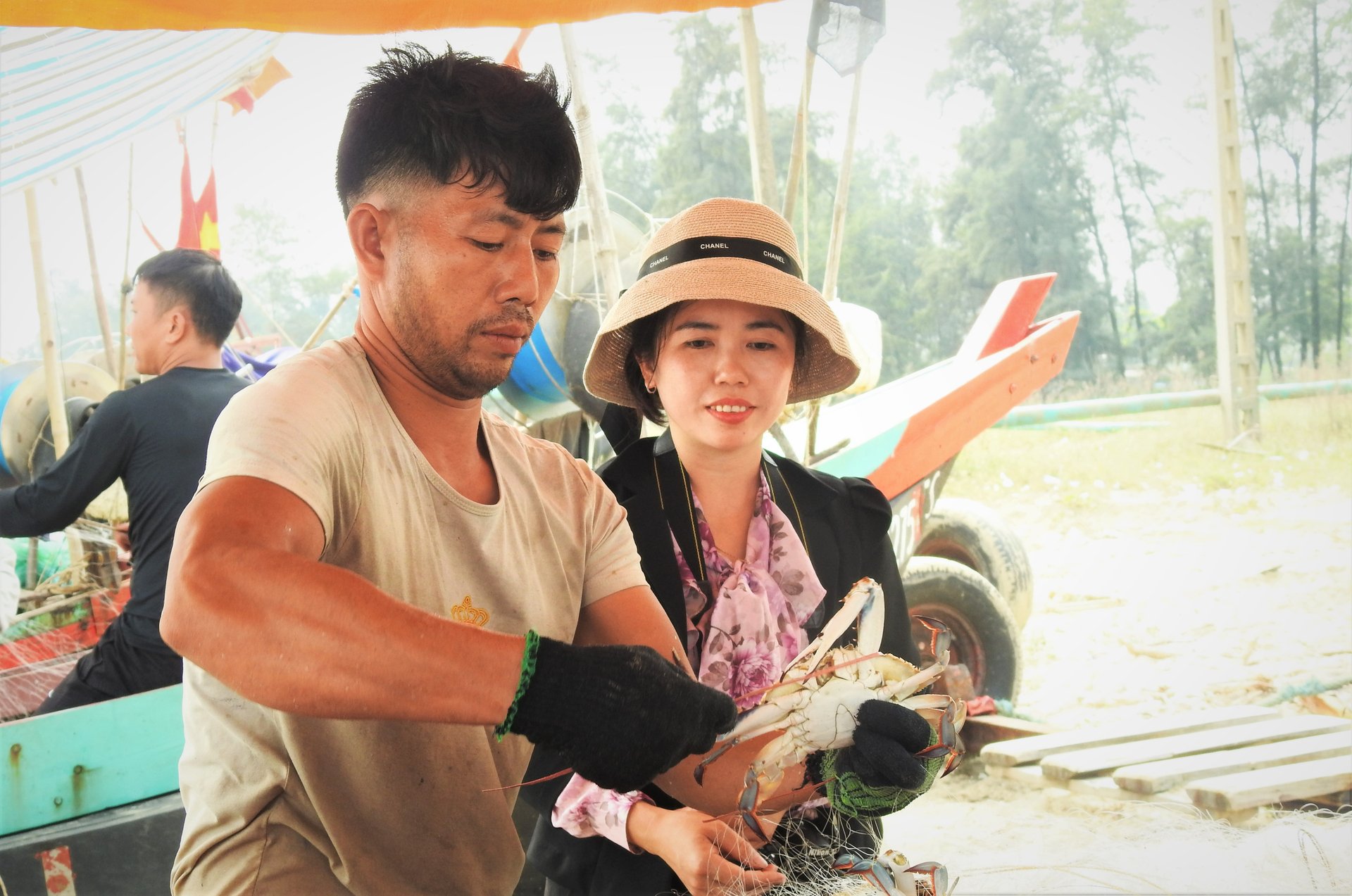
All harvested seafood products must be declared in accordance with regulations to facilitate origin traceability. Photo: Thanh Nga.
Ha Tinh province currently has 2,784 fishing vessels registered for seafood exploitation in coastal and offshore areas, including 439 vessels with a length between 12 and 15 meters, and 96 vessels with a minimum length of 15 meters. These vessels engage in various fishing activities such as trawling, gillnetting, seining, trapping, squid netting, and crab catching. The remaining 2,249 vessels under 12 meters in length, and they are involved in handline and hook-and-line fishing within the province's coastal areas.
All fishing vessels in the region are appropriately marked and display registration numbers in accordance with the regulations. More than 90% of these vessels have been issued fishing licenses. Most notably, the annual average output of local seafood exploitation reaches nearly 39,000 tons.
During the first eight months of 2023, the local government has conducted 124 sea patrols and inspections, detecting and handling 24 cases involving 27 fishing vessels engaged in IUU fishing activities. Accordingly, the administrative fines for these violations totaled over 500 million VND.
Translated by Nguyen Hai Long
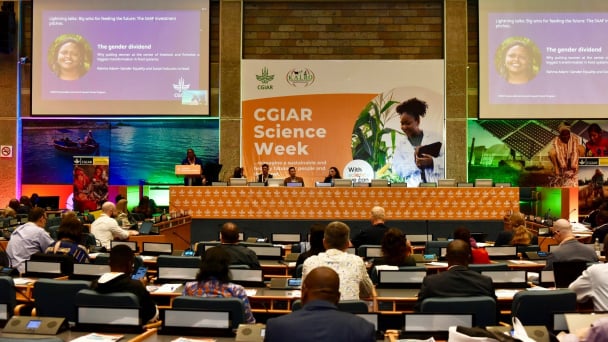
(VAN) The CGIAR’s Sustainable Animal and Aquatic Foods (SAAF) program represents a new approach that emphasizes the transformation of food systems toward sustainability.
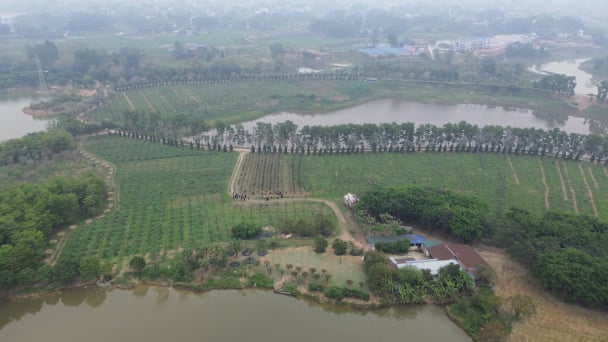
(VAN) Scientists assume that industrial agriculture has been 'outdated.' As a result, a comprehensive overhaul or a revolution in the direction of embracing ecological agriculture is needed.
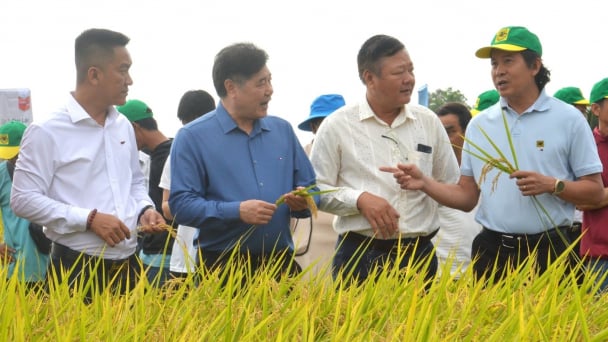
(VAN) The results from pilot fields are catalyzing the expansion of the One million hectares of high-quality, low-emission rice project in Kien Giang.
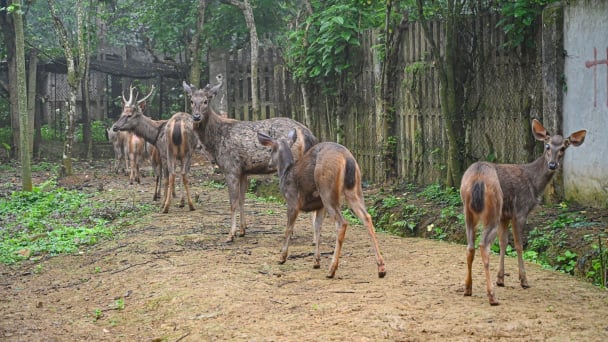
(VAN) On the morning of April 11, Cuc Phuong National Park received 18 individuals of endangered and rare wild animals from Da Nang city.
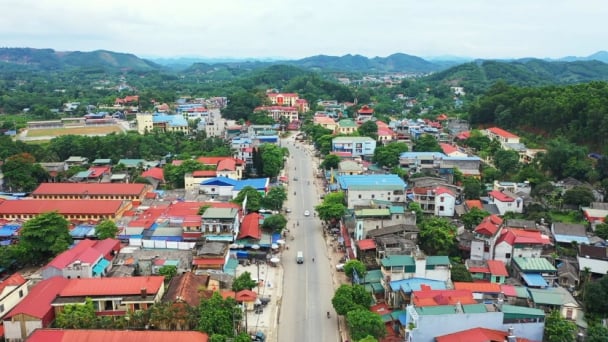
(VAN) FAO supports Vietnam in enhancing survey sampling techniques for the 2025 nationwide agricultural and rural census.
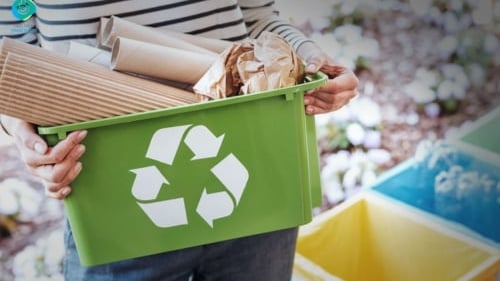
(VAN) By participating in the green transition, manufacturers become an indispensable part of the circular economy, contributing to resource optimization and environmental protection.
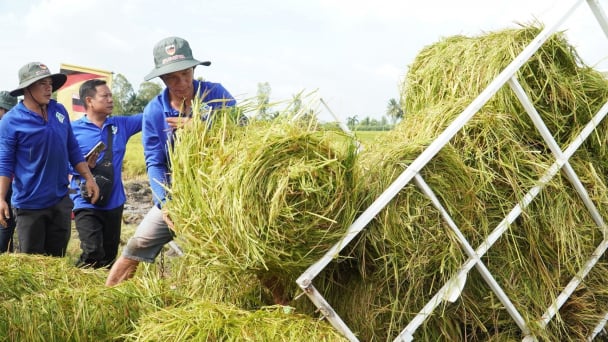
(VAN) The One Million Hectares of High-Quality and Low-Emission Rice Program can generate nearly 14 million tons of straw annually, posing an urgent requirement to diversify straw-based products.